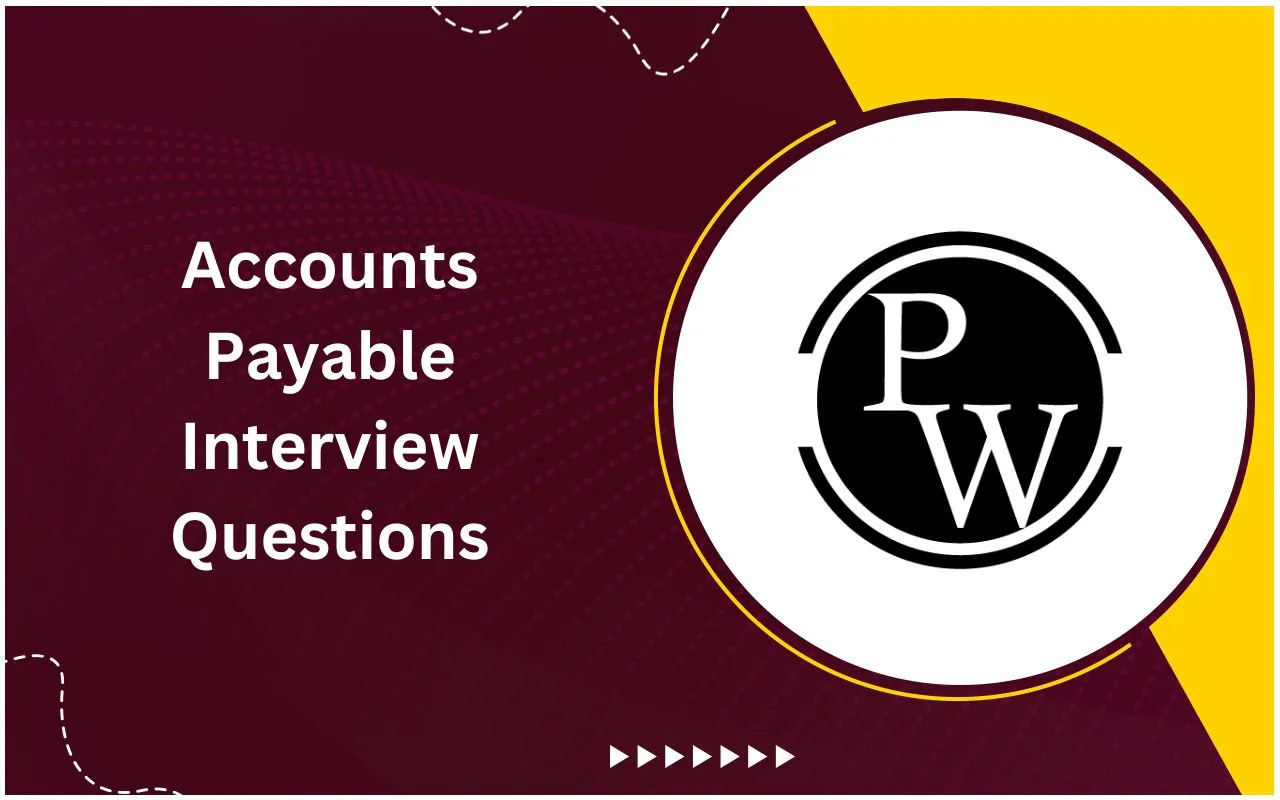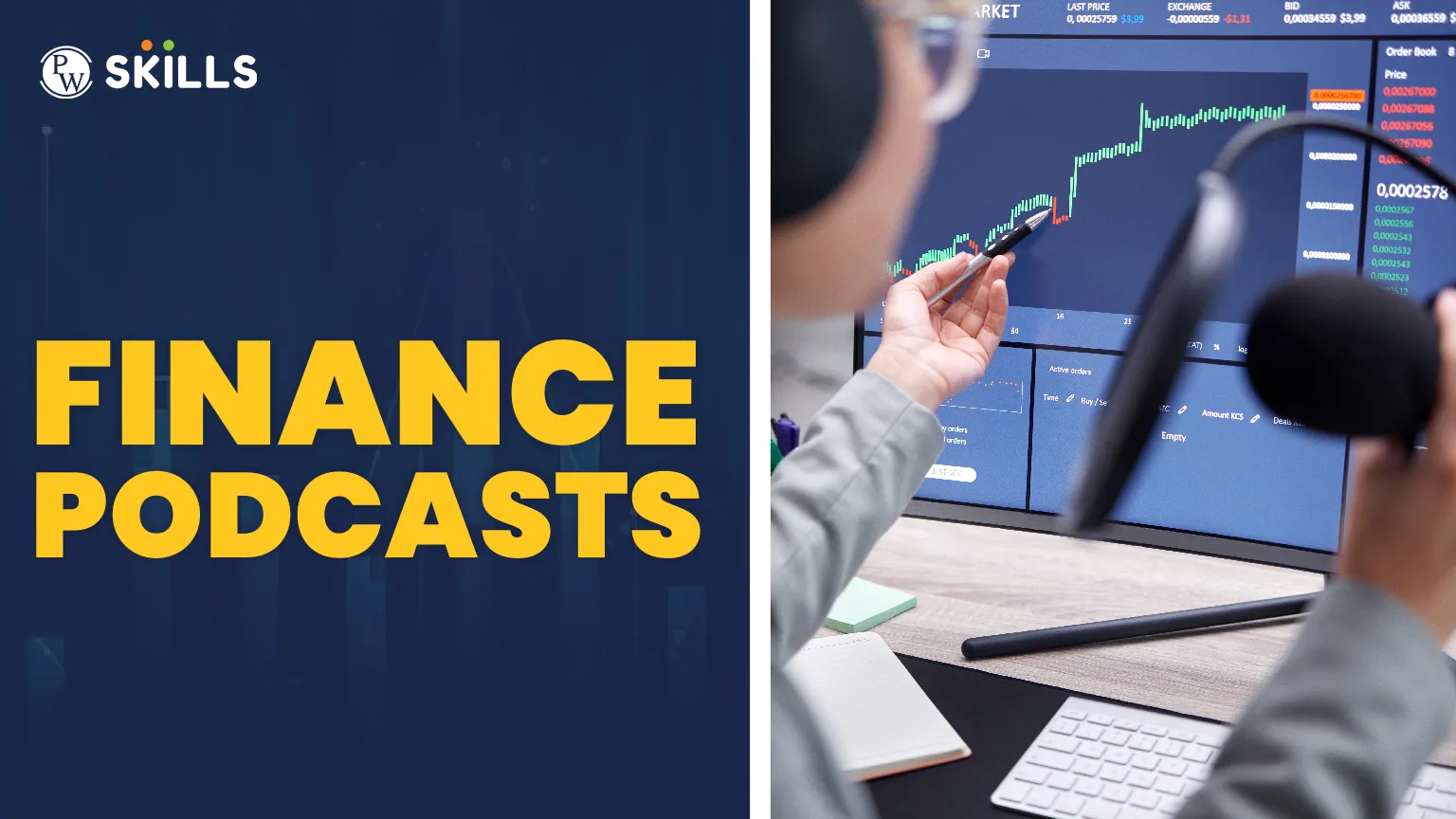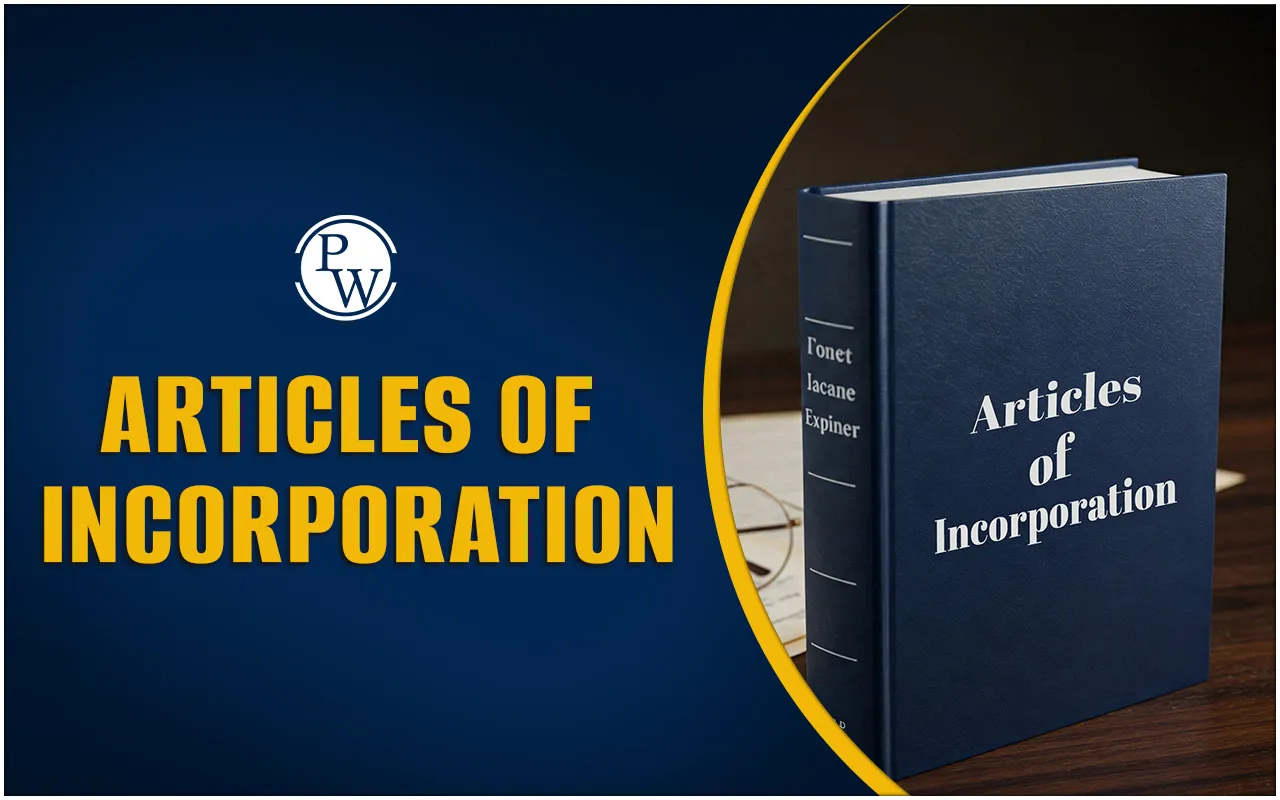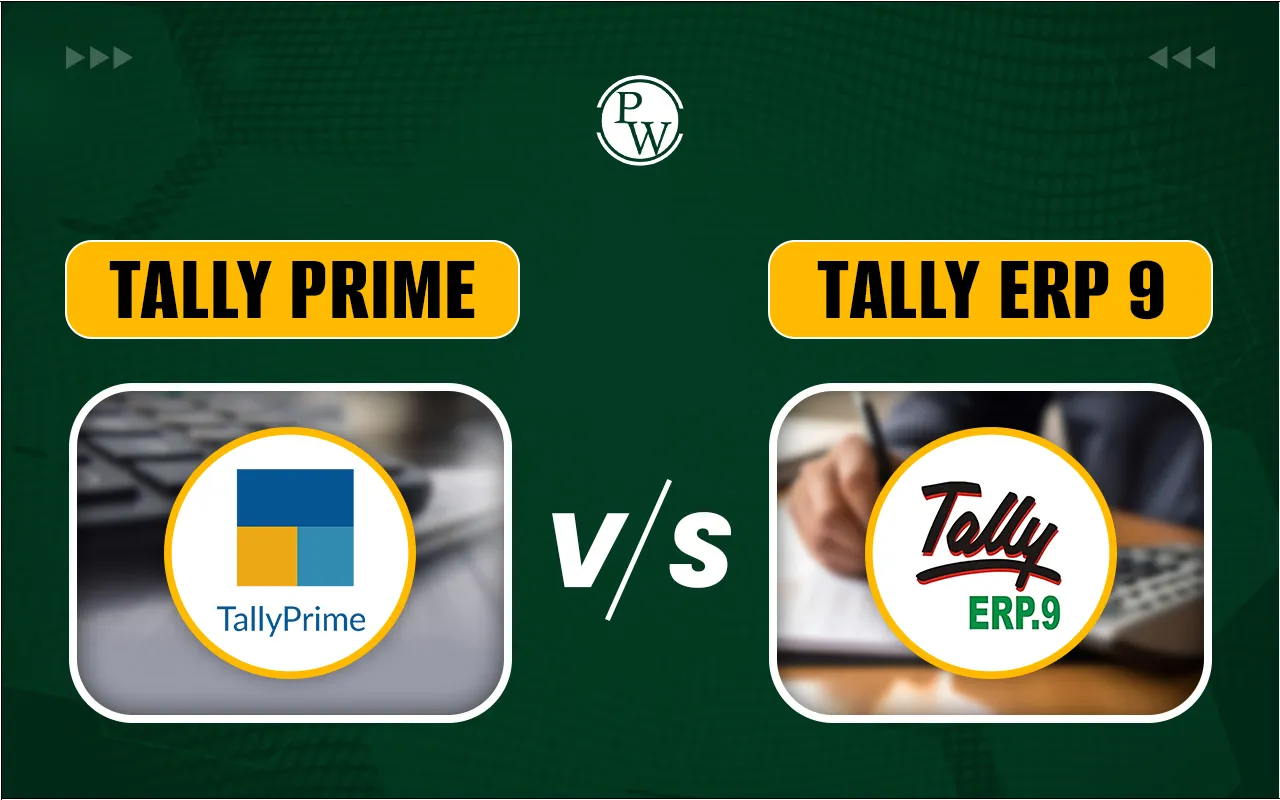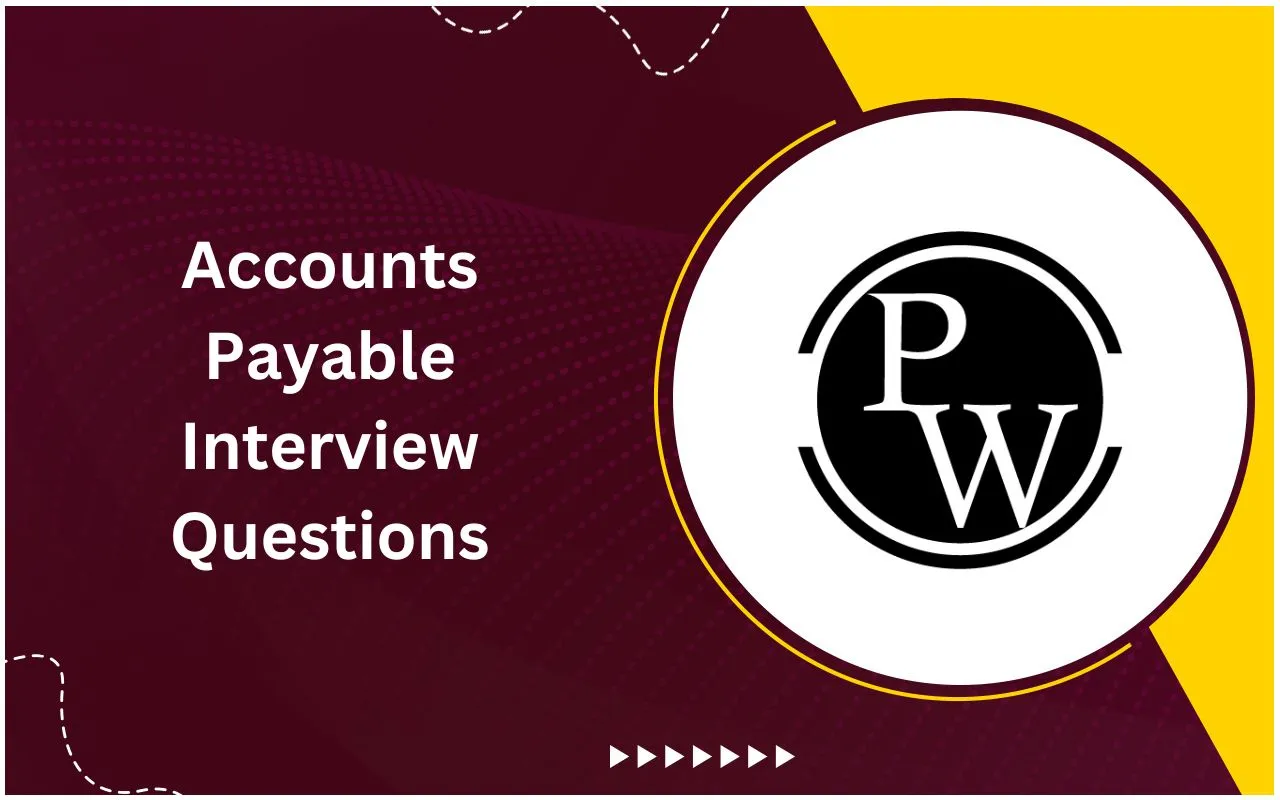
Accounts Payable Interview Questions: Are you ready to ace your accounts payable interview? Landing a job in accounts payable starts with a strong interview performance. Employers assess your understanding of financial processes, vendor payments, and record-keeping.
Preparing with the proper accounts payable interview questions with answers boosts your confidence and improves your chances of success. This guide covers accounts payable job interview questions and answers, including interview questions for accounts payable roles like processors and specialists.
Whether you're a fresher or looking to strengthen your knowledge, these accounts payable interview questions for freshers will help you tackle technical concepts, problem-solving scenarios, and software-related queries.
Explore 25+ accounts payable questions, expert answers, and preparation tips to ensure you’re interview-ready.
Understanding Accounts Payable
Accounts Payable (AP) represent the outstanding payments a company owes to suppliers for products or services purchased on credit. Until paid, AP is recorded as a liability on the balance sheet. Managing accounts payable involves verifying invoices, approving payments, and ensuring timely transactions.
For example, if a company buys office supplies on credit, the amount due remains in accounts payable until settled. Individuals also have payables, like an electricity bill due at the end of the month.
If you're preparing for an interview, reviewing Accounts Payable Interview Questions can help you understand invoice processing, payment cycles, and accounting software.
25+ Accounts Payable Interview Questions and Answers
If you are preparing for an accounts payable job interview, understanding the important concepts, processes, and best practices is crucial. Here are 25+ interview questions for accounts payable, covering both technical and behavioral aspects. These accounts payable interview questions with answers will help you confidently approach your next interview.
Question 1: What are accounts payable, and why is it important in a business?
Answer: Accounts payable (AP) refers to the money a business owes to its suppliers or vendors for goods and services received on credit. It is listed as a liability on the balance sheet.
Importance of accounts payable:
-
Helps process payments on time and fosters strong vendor relationships.
-
Helps track company expenses and manage cash flow effectively.
-
Avoids penalties due to late payments and improves creditworthiness.
Question 2: What are the main functions of an accounts payable department?
Answer: The accounts payable department handles various financial tasks related to vendor payments. Its main functions include:
- Processing invoices and verifying payment details.
-
Managing vendor records and maintaining accurate payment history.
-
Handling purchase orders and matching them with invoices and receipts (three-way matching).
-
Ensuring compliance with company policies and tax regulations.
-
Reconciling accounts and preparing reports for financial analysis.
Question 3: Can you explain the accounts payable process from invoice receipt to payment?
Answer: The accounts payable process involves several steps to ensure accurate and timely payments:
- Invoice Receipt: The company receives an invoice from the vendor for goods or services delivered.
-
Invoice Verification: The invoice is checked for accuracy, ensuring it matches the purchase order and goods receipt (three-way matching).
-
Approval Process: The invoice is sent to the relevant department for approval.
-
Payment Processing: Once approved, the payment is scheduled based on agreed terms.
-
Reconciliation & Record Keeping: Payment details are recorded in the accounting system, and the transaction is reconciled.
Question 4: What is three-way matching in accounts payable? Why is it important?
Answer: Three-way matching is a process that ensures the accuracy of payments by comparing three documents:
|
Document |
Purpose |
|
Purchase Order (PO) |
Confirms the order details and agreed price. |
|
Invoice |
Shows the amount to be paid for goods/services. |
|
Receiving Report |
Confirms that goods/services were received as ordered. |
Importance:
-
Prevents overpayments, duplicate payments, or fraud.
-
Ensures correct quantities and pricing before approving payments.
-
Helps in maintaining accurate financial records.
Question 5: How do you handle discrepancies between purchase orders, invoices, and receipts?
Answer: If a discrepancy arises, I follow these steps:
Step 1: Identify the source of the issue (e.g., incorrect pricing, missing items, duplicate charges).
Step 2: Communicate with the vendor or internal teams to clarify and resolve the discrepancy.
Step 3: Adjust the invoice if necessary or request a revised invoice from the vendor.
Step 4: Document the resolution for future reference and compliance purposes.
For instance, if an invoice lists 100 units at $10 each but the PO states 90 units, I would verify the actual delivery and adjust the payment accordingly.
Read More - What is Accounting Equation
Question 6: What is the difference between PO and Non-PO invoices?
Answer: PO and Non-PO invoices differ in how they are processed:
|
Feature |
PO Invoice |
Non-PO Invoice |
|
Approval |
Pre-approved via a purchase order. |
Requires additional approval before payment. |
|
Processing Speed |
Faster, as it matches the PO. |
Slower due to manual verification. |
|
Risk of Errors |
Lower |
Higher due to lack of pre-approval. |
|
Best Used For |
Regular purchases with vendors. |
One-time or emergency purchases. |
Question 7: What strategies do you use to prevent duplicate payments?
Answer: To avoid duplicate payments, I implement these strategies:
- Use invoice matching to check for duplicates before processing.
-
Implement automation software that flags potential duplicate invoices.
-
Maintain a centralized vendor database to track payment history.
-
Regularly reconcile accounts to identify and correct duplicate payments.
Question 8: How do you manage vendor relationships in accounts payable?
Answer: Strong vendor relationships ensure smooth operations. I focus on:
- Timely and accurate payments to build trust.
-
Clear communication about payment terms, invoice issues, and discrepancies.
-
Negotiating better terms when possible, such as early payment discounts.
-
Maintaining accurate vendor records to avoid payment delays.
Question 9: What are ageing reports in accounts payable? How do they impact cash flow?
Answer: An ageing report categorizes unpaid invoices based on how long they have been outstanding:
|
Age Bracket |
Meaning |
|
0-30 days |
Current invoices, normal payments. |
|
31-60 days |
Slightly overdue, needs attention. |
|
61-90 days |
Late payment may affect vendor trust. |
|
90+ days |
Seriously overdue, potential penalties. |
Impact on cash flow:
-
Helps prioritize payments to maintain vendor relationships.
-
Prevents unnecessary penalties or late fees.
-
Assists in budgeting and financial planning.
Question 10: How do you handle urgent or unexpected payment requests?
Answer: When an urgent payment request arises, I:
Step 1: Verify the request’s legitimacy and approval requirements.
Step 2: Check the budget and cash flow availability.
Step 3: Expedite processing while ensuring all compliance checks are met.
Step 4: Document the transaction for audit and future reference.
For example, if a vendor requires immediate payment due to a service delay, I would escalate the request for quick approval while ensuring compliance.
Question 11: What are some common accounts payable mistakes, and how do you avoid them?
Answer: Common mistakes include:
- Late payments: Avoided by setting reminders and automating payments.
-
Duplicate payments: Prevented by invoice tracking and approval workflows.
-
Incorrect invoice processing: Fixed by verifying details and using three-way matching.
Question 12: How do you handle tax compliance in accounts payable?
Answer: To ensure tax compliance:
Step 1: I verify vendor Tax Identification Numbers (TINs) before processing payments.
Step 2: Ensure invoices include GST, VAT, or applicable taxes as per regulations.
Step 3: Maintain accurate tax records for reporting and audits.
Question 13: What accounting software have you used for accounts payable?
Answer: I have experience with various accounts payable software, including:
- QuickBooks – For small to medium businesses, automated invoice processing.
-
SAP & Oracle ERP – Used in large enterprises for integrated financial management.
-
Microsoft Dynamics – Helps in managing AP workflows efficiently.
Question 14: How do you manage accounts payable during month-end or year-end closing?
Answer: At month-end/year-end closing, I:
Step 1: Reconcile all outstanding invoices and payments.
Step 2: Verify and adjust accruals for pending expenses.
Step 3: Generate financial reports to ensure accurate closing statements.
Step 4: Collaborate with the accounting team to finalize balances.
Question 15: What is the difference between accounts payable and accounts receivable?
Answer: Accounts payable (AP) and accounts receivable (AR) are opposite functions in accounting:
|
Feature |
Accounts Payable (AP) |
Accounts Receivable (AR) |
|
Definition |
Amount a company owes to suppliers. |
Amount customers owe to the company. |
|
Balance Sheet |
Recorded as a liability. |
Recorded as an asset. |
|
Cash Flow Impact |
Outflows (payments made). |
Inflows (payments received). |
|
Examples |
Supplier invoices, utility bills. |
Customer invoices, credit sales. |
Question 16: How do you handle invoices that are received but not recorded in the system?
Answer: If an invoice is received but not recorded, I:
Step 1: Verify its authenticity and approval status.
Step 2: Check if the invoice was misplaced or incorrectly categorized.
Step 3: Enter it into the system under the correct period to maintain accurate financial records.
Step 4: Adjust accruals if required for month-end reporting.
For example, if an invoice for office supplies is found late, I would enter it with the correct date and adjust records to reflect the correct financial period.
Question 17: What are some common fraud risks in accounts payable, and how do you prevent them?
Answer: Fraud risks in accounts payable include:
- Duplicate invoices: Prevented by automated invoice matching.
-
Fake vendors: Avoided by verifying vendor details before payments.
-
Unauthorized payments: Controlled through multi-level approvals.
-
Check fraud: Reduced by using electronic payments and verification processes.
Preventive measures:
-
Implement internal controls like approval workflows.
-
Regularly audit vendor transactions.
-
Use segregation of duties to prevent conflicts of interest.
Question 18: How do early payment discounts work in accounts payable?
Answer: Early payment discounts are incentives offered by vendors to encourage faster payments.
Example of a common discount: 2/10, net 30
- "2" – Discount percentage (2%).
-
"10" – Days within which payment must be made to avail the discount.
-
"Net 30" – Full payment is due within 30 days if no discount is taken.
Benefits:
-
Saves money for the company.
-
Strengthens vendor relationships.
-
Improves cash flow management.
Question 19: What steps do you take when a vendor disputes a payment?
Answer: When a vendor disputes a payment, I:
Step 1: Review the invoice and payment records to identify discrepancies.
Step 2: Communicate with the vendor to clarify concerns.
Step 3: Compare supporting documents (purchase orders, receipts, approvals).
Step 4: Resolve the issue by issuing an adjustment, credit note, or additional payment if needed.
Step 5: Update records to reflect the resolution.
Read More - Account Manager Job Description, Qualifications, and Salary
Question 20: How do you ensure compliance with company policies in accounts payable?
Answer: To maintain compliance, I:
Step 1: Follow company-approved vendor lists to avoid unauthorized payments.
Step 2: Ensure all invoices go through proper approval workflows.
Step 3: Keep detailed documentation for audits and reporting.
Step 4: Regularly review AP processes to align with industry standards.
For example, if a vendor submits an invoice without a purchase order, I would escalate it for approval before processing the payment.
Question 21: What do you do if a vendor issues an incorrect invoice?
Answer: If a vendor issues an incorrect invoice, I:
Step 1: Identify the error (e.g., incorrect amount, missing details).
Step 2: Contact the vendor to request a corrected invoice.
Step 3: Hold the payment until the issue is resolved.
Step 4: Update records with the revised invoice details.
For instance, if a vendor charges $5,000 instead of $4,500, I would request a corrected invoice before processing payment.
Question 22: How do you handle a situation where a company is facing cash flow issues and cannot pay invoices on time?
Answer: If the company faces cash flow constraints, I:
- Prioritize urgent and critical payments (e.g., essential suppliers, utilities).
-
Negotiate extended payment terms with vendors.
-
Look for early payment discounts that reduce costs.
-
Communicate proactively with vendors to maintain trust.
For example, if funds are limited, I may negotiate a partial payment plan to maintain supplier relationships.
Question 23: What is the impact of outstanding accounts payable on financial statements?
Answer: Unpaid accounts payable affect financial statements in several ways:
- Balance Sheet: Increases liabilities (current liabilities section).
-
Income Statement: Affects net income if payments include late fees.
-
Cash Flow Statement: Recorded as a cash outflow when payments are made.
For instance, if a company has ₹500,000 in outstanding AP, it increases liabilities and reduces available cash for operations.
Question 24: What is a debit balance in accounts payable?
Answer: A debit balance in AP occurs when:
-
A company overpays a vendor.
-
A vendor issues a refund or credit note but it’s not adjusted yet.
For instance, if a company mistakenly pays ₹10,000 for a ₹9,500 invoice, a ₹500 debit balance appears until adjusted.
Question 25: How do you reconcile accounts payable with the general ledger?
Answer: To reconcile AP with the general ledger, I:
Step 1: Compare AP records with the ledger balance.
Step 2: Check for missing or duplicate entries.
Step 3: Verify payment records to ensure all cleared payments are recorded.
Step 4: Adjust discrepancies with corrections or journal entries.
Question 26: What are some challenges in managing accounts payable, and how do you handle them?
Answer: Common challenges include:
- High volume of invoices: Solved by using AP automation software.
-
Payment delays: Addressed by setting reminders and approval workflows.
-
Invoice fraud: Prevented by verifying vendor authenticity.
For example, if invoice processing takes too long, I would introduce automated approval workflows to speed up payments.
Question 27: What is a GRN (Goods Receipt Note), and how does it relate to accounts payable?
Answer: A Goods Receipt Note (GRN) is a document that confirms receipt of goods from a vendor.
Use in Accounts Payable:
-
Helps in three-way matching with purchase orders and invoices.
-
Ensures only received goods are paid for.
-
Prevents disputes over missing or incorrect deliveries.
For example, if an invoice lists 100 units but the GRN confirms 90, I would adjust the payment accordingly.
Question 28: What is accrual accounting in accounts payable?
Answer: Accrual accounting records expenses when they are incurred, not when they are paid.
For example, if rent for March is due but unpaid, it is recorded as an accrued expense in March’s financials.
Impact:
-
Ensures expenses are matched with revenues for accurate financial reporting.
-
Helps in forecasting liabilities and cash flow.
Question 29: How do you handle multi-currency transactions in accounts payable?
Answer: When dealing with multi-currency transactions, I follow these steps:
Step 1: Check the exchange rate on the transaction date.
Step 2: Record the invoice in local currency, using the appropriate rate.
Step 3: Monitor currency fluctuations for payment adjustments.
Step 4: Ensure compliance with tax and regulatory requirements for foreign transactions.
Step 5: Reconcile payments by verifying bank deductions for currency conversions.
For instance, if a company in India receives an invoice of $1,000 from a U.S. supplier, I will convert it to INR using the exchange rate on the invoice date and record the payable accordingly.
Question 30: What are the benefits of automation in accounts payable?
Answer: Automating accounts payable improves efficiency by:
- Reducing manual errors in data entry.
-
Speeding up invoice processing with AI-driven approvals.
-
Enhancing accuracy in three-way matching (invoice, purchase order, and receipt).
-
Preventing fraud by setting automated approval limits.
-
Providing real-time tracking of outstanding payables.
For example, using AP automation software like SAP or QuickBooks can help reduce invoice processing time from days to hours, ensuring faster payments and fewer discrepancies.
These accounts payable questions cover essential topics for accounts payable interview questions for freshers and experienced professionals. Preparing with these accounts payable job interview questions and answers will boost your confidence and help you succeed in your interview.
Top Tips to Prepare for an Accounts Payable Interview
Succeeding in an accounts payable interview requires technical knowledge, problem-solving skills, and attention to detail. Here’s how to prepare:
1. Know the Accounts Payable Process: Understand invoice processing, approvals, payment methods, and vendor management. Be ready for accounts payable interview questions on handling discrepancies and late payments.
2. Highlight Software Skills: Familiarize yourself with accounting software like QuickBooks, SAP, or Oracle. If you’re a fresher, research commonly used tools to answer accounts payable interview questions for freshers.
3. Show Problem-Solving and Accuracy: Prepare examples of resolving invoice errors, payment delays, and vendor disputes. These often appear in accounts payable job interview questions and answers.
4. Demonstrate Communication and Organization: Discuss how you prioritize invoices, meet deadlines, and coordinate with vendors. Employers may ask interview questions for accounts payable about handling high workloads.
5. Practice Common Interview Questions: Expect accounts payable questions on fraud prevention, reconciliation, and efficiency improvements. Use real examples to answer accounts payable interview questions with answers confidently.
Acing an Accounts Payable interview requires knowledge of accounting principles, invoice processing, and financial software. Focus on accuracy, problem-solving, and vendor management. Practicing accounts payable interview questions with answers helps build confidence and enhances your chances of securing the job.
Build Your Accounting Skills with PW (PhysicsWallah)
The PW Accounting and Taxation Online Course is a 4-month program designed in collaboration with PwC India. It covers finance, tax, and accounting concepts with hands-on training in tools like Excel. Gain industry insights, professional certification, and practical experience. Take the first step toward a successful career in accounting with the PW Accounting and Taxation Online Course!
FAQ
What does accounts payable mean?
What are the major responsibilities of an accounts payable professional?
What skills are essential for an accounts payable role?
What are common accounts payable interview questions for freshers?
How can I prepare for an accounts payable interview?

